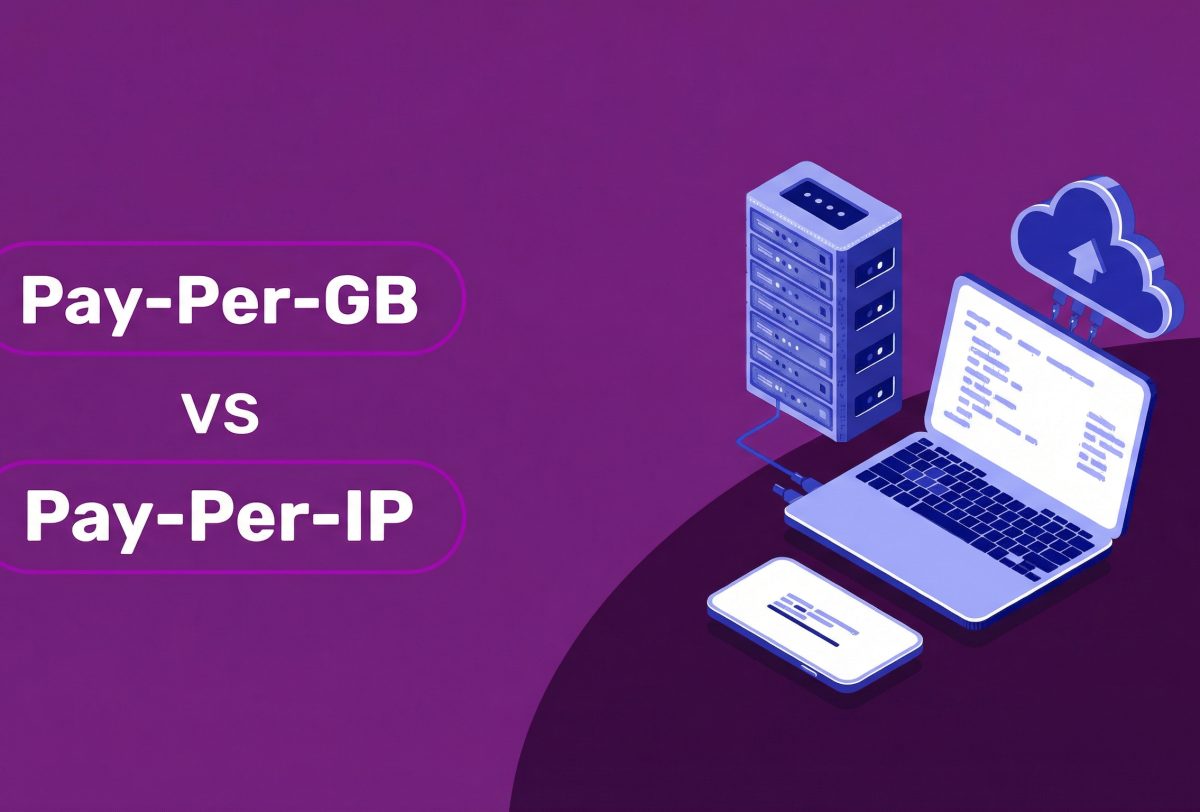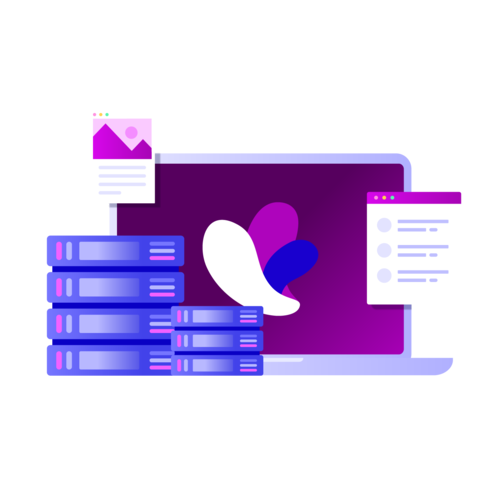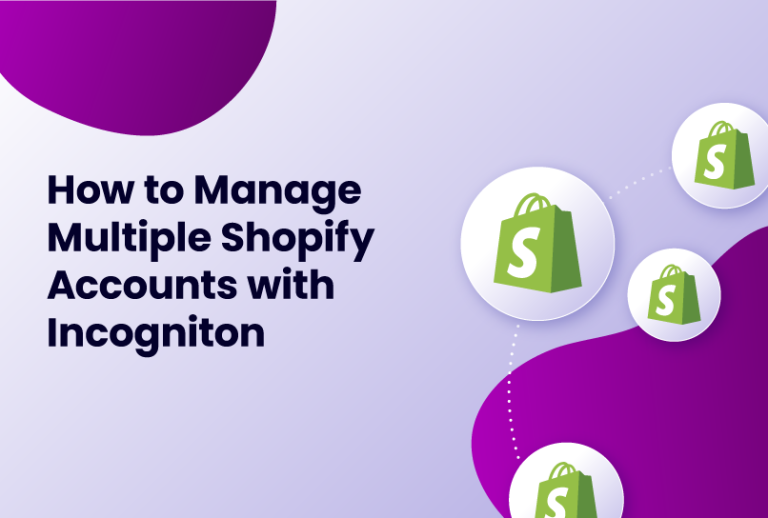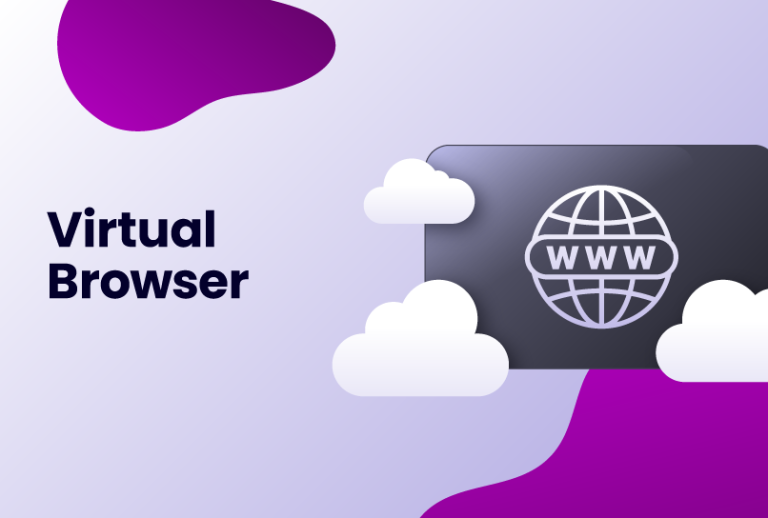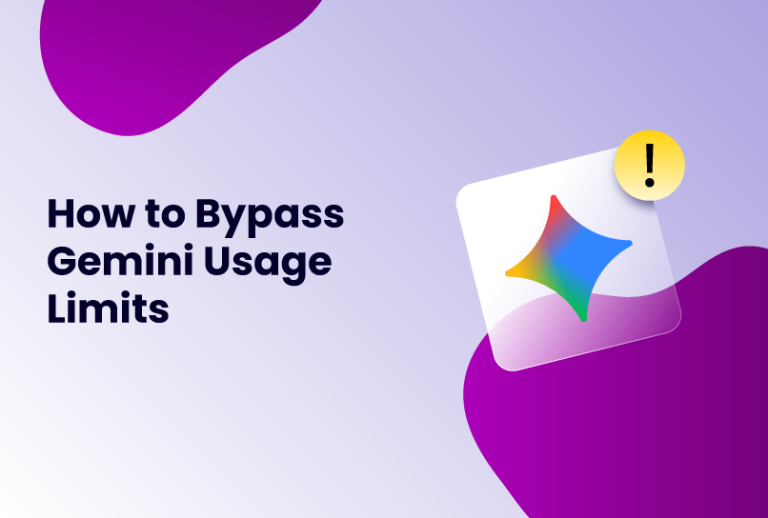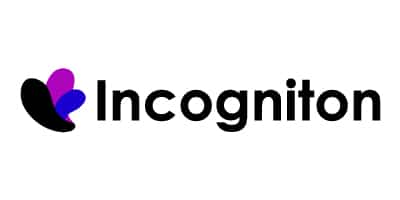Proxy users commonly struggle to understand pricing information when selecting a provider - many find it overwhelming. While the trial-and-error approach works in most scenarios, a fundamental decision every user must make early on is choosing between Pay-per-GB and Pay-per-IP models.
Understanding the differences between these pricing models can help you make an informed decision based on your specific requirements and budget.
This guide is to help you make an informed decision. We will explore two of the most common pricing models and when it might be advisable to opt for either. Shall we?
Pay-per-GB vs. Pay-per-IP (Two Popular Pricing Models)
There are two popular primary pricing options proxy providers present to a potential customer: pay-per-GB and pay-per-IP. These options are closely tied to how the customer intends to use these services more than anything as you’ll see below:
Pay-Per-GB
With this pricing model, the cost is based on the amount of data you use. This means that the cost will depend on the size and complexity of the web pages you access, making it unpredictable and variable within a given period.
The pay-per-GB model is ideal for use cases that involve transferring large amounts of data, such as web scraping, data mining, or any other activity that involves processing large amounts of online information.
It is also beneficial if you have intermittent or variable usage patterns, as you only pay for the data transferred rather than a fixed number of IPs that you may not use.
Pay-Per-IP
In the pay-per-IP model, you pay a fixed fee for a dedicated IP address or proxy port, typically charged on a monthly or yearly basis. This model provides predictable pricing and can be more cost-effective for low-volume activities. However, it can be expensive and inflexible if you need to change or rotate your IP addresses frequently.
The pay-per-IP model is best suited for use cases that require a static IP address, such as managing a single social media account, or for scenarios where a consistent IP address is required for extended periods, such as online banking, shopping, or voting.
Which Pricing Model is Right for You?
Determining the optimal pricing model depends on your specific use case, requirements, and usage patterns. Both options have their perks and downfalls. Here are some general guidelines to help you make an informed decision:
When to opt for pay-per-IP:
- If you need to work with a single, static IP address for an extended period, pay-per-IP is your best bet. The option provides you with a dedicated IP address that you can use for as long as needed, without worrying about data transfer limits or additional charges.
- If you need to make a large number of requests or connections, buying a certain number of IPs might be more cost-effective. With a fixed number of IPs, you can distribute your requests across them, reducing the likelihood of getting blocked due to rate limiting or other restrictions.
When to opt for pay-per-GB:
- Using a pay-per-GB model is likely to be more cost-effective if you scrape, crawl, or process large amounts of data from multiple sources. The model allows you to access a pool of IP addresses and pay only for the data transferred, making it ideal for data-intensive projects.
It is worth noting, however, that for tasks such as social media management or affiliate marketing, a blend of pricing models can be advantageous. You might opt for a dedicated IP address (pay-per-IP) for reliable access, coupled with a pay-per-GB plan for data-heavy tasks like market research.
Factors to Consider When Choosing a Proxy Solution
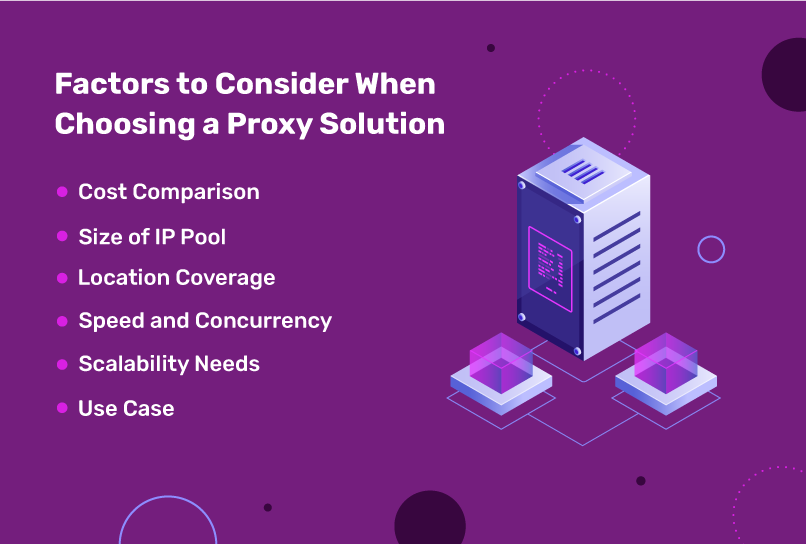
When choosing a proxy solution, there are several factors to consider besides pricing. The first step is to have a clear understanding of the different types of proxies available, including data center proxies, residential proxies, and variations in between. (Check out our guide on Residential vs. Data-center proxies). Here are some key factors to consider:
Cost Comparison
Cost comparison should be based on your anticipated usage. To determine which option is more cost-effective for you, calculate the total cost of buying a certain number of IPs versus paying per GB over a given period.
You should also take the price flexibility offered by providers into account since pricing models vary and some may offer alternative options or customized solutions based on specific requirements. Moreover, many services offer free trials, allowing potential customers to experience the platform's features before committing financially.
Size of IP Pool:
A proxy network needs to have a large pool of available IP addresses to maintain optimal efficiency. This not only reduces the chances of a specific address being detected by sensors but also speeds up data exchange.
Therefore, the number of IPs is a critical factor. However, most proxy providers do not make this information publicly available. Your best bet is to check reviews and user feedback to get an idea of how wide a provider pool is.
Location Coverage
Depending on your use case, you may require proxies from specific geographic locations. Thus, choosing a proxy with the desired range of locations is essential. You might want to go with a provider that offers the flexibility to select your preferred location, that is, one that enables you to target specific regions or countries for your tasks.
Speed and Concurrency
For tasks that require high-speed data retrieval or simultaneous connections, it's essential to choose proxies that can handle the necessary throughput and concurrency levels. Not all proxies are optimized for speed and can support multiple concurrent connections. You might have to do a little digging, via user reviews and other benchmark tests, to confirm this.
Scalability Needs.
The factor mentioned here is entirely dependent on you and it ties in well understanding the pricing models of proxy providers (which we believe you do now). If you expect to require more IPs as your usage grows, purchasing a specific number of IPs in advance might be more convenient for you. Alternatively, paying per GB enables you to scale more flexibly according to your actual usage.
Use Case
Perhaps the most crucial factor to consider. You need it to judge the success rate of a proxy type or provider. Different proxy types may have varying success rates depending on the website or platform you're interacting with.
For instance, residential proxies would be the most suitable choice for a social media manager, as they are less likely to raise suspicion from platforms' anti-bot systems. In the next section, we’ll look into different use cases and our recommendation between pay-per-IP and pay-per-GB in each case.
Use-case-specific pricing model recommendations
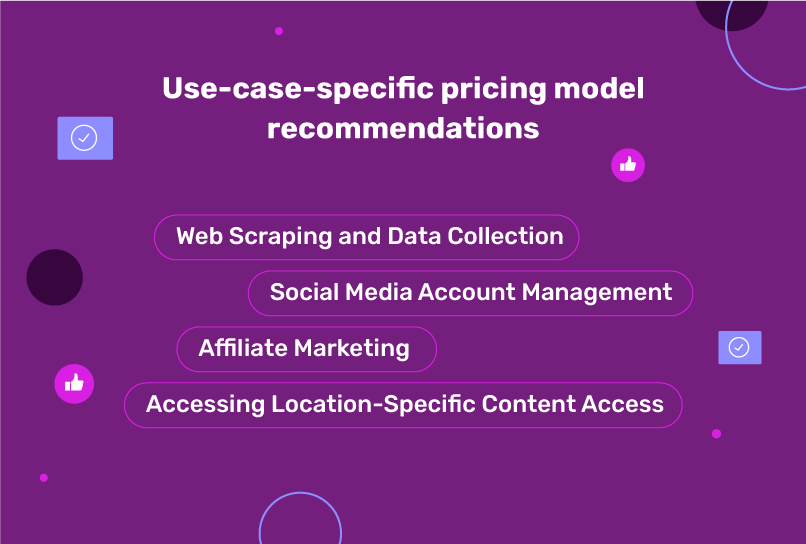
For most, this section may be the most important, as we dissect each use case and what model fits best. Putting the advice we shared so far in action might look like this for these common proxy use cases:
1. Web Scraping and Data Collection
For web scraping and data scraping activities that involve transferring large amounts of data, a pay-per-GB residential proxy or data center proxy solution would be the most suitable choice.
Residential proxies offer higher success rates and are less likely to be detected as bots, while data center proxies provide faster speeds and consistent performance.
2. Social Media Account Management
If you're managing multiple social media accounts, a residential proxy solution with a pay-per-IP model would be the ideal option. This is especially important because of the strict access rules most platforms in the sector have.
3. Affiliate Marketing
For affiliate marketing activities like Ad Verification, a mix of residential and data center proxies with a pay-per-IP pricing model would be suitable. This approach offers the best of both worlds, ensuring seamless integration with ad networks' anti-fraud measures while maintaining high throughput and efficiency.
4. Accessing Location-Specific Content Access
If you need to access content or services tailored to specific geographic locations, a mobile proxy solution or a residential proxy with the desired geolocation would be the most appropriate choice. You can also opt for a pay-per-IP or pay-per-GB pricing model, depending on the volume of data you would transfer and the frequency of usage.
For example, if you are streaming an event, you might want to opt for the pay-per-GB model. However, if you will be streaming from a source consistently over time, you might find a per-per-IP model more favorable.
Note: These use-case recommendations are meant to guide you in making the right decisions. Your specific requirements may differ or be a combination of use cases, so factor that into your decision process.
Maximizing Value: Tips for Cost-Effective Proxy Usage
While proxies are essential tools for many online activities, managing costs is often a concern, particularly for projects that involve large-scale data processing or long-term proxy usage. Here are some tips to help you maximize the value of your proxy investment:
1. Optimize Data Transfer
If you're using a pay-per-GB pricing model, it's important to optimize your data transfer to keep costs low. You can do this by using efficient web scraping techniques, such as parallel processing and caching, and reducing unnecessary data retrieval.
2. Monitor and Analyze Usage
Regularly monitoring and analyzing your proxy usage can help you identify areas where you can optimize and reduce costs. This involves tracking data transfer volumes, connection patterns, and performance metrics, which will help you make informed decisions about adjusting your proxy plan or implementing more efficient practices. By doing so, you can save money and improve the performance of your proxy usage.
3. Choose the Right Proxy Plan
When you choose the right proxy plan right from the start, you can save money in the long run. For instance, if you are paying per IP and you need proxies for a short-term project, it's better to opt for a plan with a smaller number of proxies.
On the other hand, if you're using proxies for a long-term project, it's more cost-effective to choose a plan with a higher number of proxies that can be used over a longer period.
By following these tips, you can ensure that you're getting the most value from your proxy investment while achieving your desired online objectives.
Conclusion
As you may have inferred, there is no one-size-fits-all answer to whether buying a certain number of IPs or paying per GB is better when choosing proxies. It is a careful balance between cost and functionality. And you, the user, will always have the final say on that.
Remember to review the terms and conditions of the providers you are considering to understand the details of their pricing models and any additional costs involved. Also, ensure you pick from reputable proxy server providers so you don’t expose yourself to further risk.
As an added bonus, check out our collection of proxy deals to help you get started quicker and at a discount. Enjoy
